Ever thought about what it takes to be a bartender? It’s more than just mixing drinks. It’s a journey that needs passion and practical skills. I’ve found that bartenders in the US make about $12.30 an hour on average. But, top earners can make up to $21.10, thanks to tips.
Managing orders and providing great service is key. If you want to start this journey, focus on getting hands-on experience. Most employers prefer practical skills over formal education1.
Key Takeaways
- Understand the importance of practical experience in the bartender career path.
- Familiarize yourself with the essential tools and responsibilities of a bartender.
- Recognize the earning potential through both hourly wages and tips.
- Embrace continuous learning to stay updated with industry trends.
- Develop strong customer service and multitasking skills to succeed.
What Are the Basics of Bartending?
Starting my bartending journey, I focus on the basics. Bartending is more than just mixing drinks. It’s about bartender responsibilities and bartending skills that make a difference.
Understanding Bartending Responsibilities
Bartenders do more than just make drinks. They manage inventory and keep the bar clean. Knowing popular drinks is key to pleasing customers. A welcoming atmosphere also boosts satisfaction.
On average, bartenders work 8 to 10 hours a day, mostly at night2. Almost 78% of them say knowing products well helps them earn more tips2.
Essential Tools of the Trade
Good bartending needs the right tools. Shakers, jiggers, and strainers are must-haves. They help me make drinks better and improve the customer’s experience.
Knowing the difference between well and call drinks is important. Well drinks are cheaper, using house liquors. Call drinks are more expensive, based on specific brands3.
As I grow in my bartending skills, learning about drink terms and mixed drinks will help me succeed3.
Education and Training Options
I looked into different ways to start my bartending career. I considered both traditional bartending schools and online courses. Schools offer hands-on training and quick feedback. Online courses are great for those with tight schedules, letting you learn at your own pace.
Bartending Schools vs. Online Courses
Bartending schools have intense programs that last from two weeks to a year. In California, you need to finish a 40-hour course to get a bartending license. This course includes lectures and lab time, with classes available six days a week.
Online courses focus on theory and require at least three hours of study. Many students add extra practice to their learning. This mix helps turn theory into practical bartending skills.
Certifications to Consider
Certifications are key to boosting my skills. The Responsible Beverage Service (RBS) course costs $11.99 and takes two hours. It’s a must in California, as you need it within 60 days of starting to serve alcohol.
Even though a bartending license isn’t required in California, having one shows you’re serious about learning. It makes you more appealing to employers.
Building Your Drink Knowledge
To excel in bartending, it’s key to keep learning about drinks, especially classic cocktails and mixology. Knowing basic recipes boosts my confidence and makes customers happy. In the U.S., 5.5 million TIPS participants have learned about alcohol safety, showing how important it is for bartenders4.
Classic Cocktails Everyone Should Know
Every bartender should know how to make classic cocktails. These drinks are the base for more complex ones. Some popular ones are:
- Old Fashioned
- Margarita
- Martini
- Mojito
- Daiquiri
Knowing the ingredients and stories behind these drinks helps me talk to customers better. It also lets me make drinks that fit what they like.
Importance of Mixology Skills
Mixology is more than just mixing drinks. It’s about understanding flavors, ingredients, and how to present them. Knowing different liquors lets me make unique drinks for different people. Bartenders find that being good at mixing many cocktails makes them more employable and able to meet customer needs.
Bartending knowledge falls into three main areas, showing that mixing drinks well is key for growth5. My learning includes:
- Knowing bartending terms (like “neat,” “on the rocks”) for clear communication.
- Good customer service skills to keep customers happy.
- How to keep a safe and welcoming place, learned in TIPS training.
In short, knowing about drinks and how to mix them well helps me succeed in bartending. It’s a key part of a successful career45.
Gaining Experience in the Industry
Getting real-world bartender experience is key for anyone wanting to do well in this field. Taking on volunteering roles or internships can teach you a lot. These experiences are crucial for learning the ins and outs of bartending.
Volunteering and Internship Opportunities
Volunteering at local events or festivals can give you practical training. It also makes your resume stand out. Many bartenders start by helping out at social events, learning from the pros.
This experience boosts your confidence and teaches you to multitask and handle pressure. Internships and short-term jobs often lead to full-time jobs in hospitality. They’re especially good for those looking for entry-level positions.
Entry-Level Positions in Hospitality
The first step for many is becoming a barback. This role lets you support bartenders and learn the ropes. You might help stock supplies and keep the bar tidy.
The U.S. Bureau of Labor Statistics predicts a 9% rise in demand for bartenders by 2032. Starting as a barback is a smart move to kickstart your bartending career6. Barbacks also get a chance to move up quickly, making it a great choice for career advancement7.
Networking in the Bartending Community
Building a strong network in the bartending world can open doors to many opportunities. Networking greatly improves your chances in the industry. By joining local bartending groups, you can meet others who share your interests and goals.
Joining Local Bartending Groups
Local bartending groups offer great resources for bartenders. Being part of groups like the United States Bartenders’ Guild (USBG) gives you access to training and exclusive events. Going to trade shows and mixology competitions helps you keep up with trends and makes important connections8.
Working with coworkers and management also grows your network. They often know people in the hospitality field8.
Leveraging Social Media Connections
Social media like LinkedIn, Instagram, and TikTok can boost your visibility and networking. Sharing your bartending skills and ideas online can attract employers and collaborators. Also, following up with new contacts can turn brief meetings into lasting relationships8.
With about 111,300 bartender jobs expected each year, networking is key to finding these jobs9.
Perfecting Customer Service Skills
Exceptional customer service is key in bartending. It makes customers happy and keeps them coming back. Bartenders who connect well with customers see a 25% jump in guest satisfaction10.
Knowing customer names and drink likes is important. Being friendly is too. These habits show great bartender etiquette.
Techniques for Engaging Customers
- Use active listening to get what customers want.
- Offer personalized drink suggestions to boost sales.
- Be quick with service, especially when it’s busy.
- Create a welcoming space for everyone.
About 70% of event hosts say customer service is key in judging bartenders10. A tidy bar setup helps serve more people faster. Bartenders can serve 15-20 drinks an hour at peak times10.
Handling Difficult Situations Gracefully
Bartenders must handle tough customers with ease. Around 10% face tough customers every week11. It’s vital to stay calm and professional.
Being able to handle many orders at once is crucial. Bartenders can manage up to 10 orders while keeping service top-notch11.
Bartenders who excel in service can see a 20% boost in tips10. Training in responsible alcohol service cuts over-service incidents by 40%. This makes the environment safer for everyone10.
Crafting a Standout Resume
Making a great first impression is key when applying for bartending jobs. I highlight my relevant experience and key skills that match the bartending world.
Highlighting Relevant Experience
In the bartending world, hiring managers quickly decide if they want to meet you12. I focus on my service industry roles, sharing my achievements. For instance, I managed a team of 10 and served over 300 customers at a live event13.
This shows I can handle pressure and improve service and customer satisfaction.
Including Key Skills and Certifications
Key skills are essential in my resume. I highlight my ability to communicate well, work as a team, and handle many tasks at once. Remembering drink orders helps me build strong relationships with regulars14.
I also include certifications like a liquor serving license, as many places require them12. I avoid unnecessary sections like objective statements. Instead, I focus on a clear layout that grabs the hiring manager’s attention right away12.
Preparing for Bartending Interviews
Getting ready for bartending interviews is key to making a good impression. Knowing common interview questions helps me answer them well. Questions often ask about my reasons for wanting to bartend, my knowledge, and experience15. Hiring managers also look for candidates with experience, with 75% of restaurants preferring them16.
Practicing answers to situational questions shows my problem-solving skills. This is something 70% of employers value16.
Common Interview Questions
It’s important to think about the questions I might get asked. Topics include my experience, how I serve customers, and dealing with tough customers. Knowing about classic cocktails is also key, as bartenders should know at least ten16.
Showing off certifications like a bartending license or alcohol safety training can set me apart16.
Dressing for Success: Bartending Style
Dressing right is a big part of interview prep. Research shows 70% of hiring managers judge applicants by how they look15. I aim to wear clothes that fit well and match the place’s style. This shows I’m professional and respect the venue.
Looking polished can make a good first impression. This can help me build rapport and get a job offer15. Arriving 10 minutes early shows I’m punctual, which hiring managers like15
Understanding Bar Equipment and Supplies
As a bartender, knowing the basics of bar equipment and supplies is key. Understanding the uses of key tools can make me more efficient and improve my service.
Key Bar Tools and Their Uses
Knowing about tools like shakers, strainers, and jiggers is the first step to making great drinks. A good bar needs a list of tools, from cocktail makers to furniture and kitchen stuff17. Choosing durable tools means they last longer and work better under pressure18.
Some must-haves include:
- Back bar coolers to keep drinks just right.
- Ice machines that meet demand and keep customers happy.
- Strong blenders for frozen drinks, handling big loads.
- Different glasses to make drinks look good and feel special.
Good equipment like underbar sinks and glass washers keeps things clean and running smoothly18. Speed rails also help me make drinks faster, especially when it’s busy.
Familiarity with Beverage Inventory
Knowing how to manage your drinks is crucial for a well-run bar. Keeping track of what you have and restocking smartly is important for a smooth flow17. For example, managing many whiskey types needs careful watching, as experts say17. Using inventory systems helps avoid counting by hand, cutting down on waste and boosting efficiency.
Checking your drinks regularly helps you see what’s popular. This lets you change your menu to please your customers. A tidy bar makes for a fun place and helps me serve better.
Continuous Learning and Growth
In bartending, always learning is essential for career growth. The field changes fast, so keeping up with trends is vital. Going to local events helps me meet other bartenders and learn new things19.
Staying Updated with Trends
Keeping up with mixology trends helps me stay ahead. I’ve learned about new ingredients and techniques through online courses. This has made me a better bartender. Advanced certifications, like the Professional Bartending Certification, are also important20.
Advanced Certifications and Courses
Getting advanced certifications opens up new opportunities. Many bars look for bartenders with extra training. In places like Louisiana, having a Responsible Vendor Card is a must for getting a job19. All these steps help me succeed in bartending.
FAQ
How do I start my journey to become a bartender?
Start by loving mixology and getting bartender training. You can learn at bartending schools or online. Also, getting hands-on experience in entry-level jobs helps a lot.
What are the essential skills required for a successful bartender?
You need to know how to make drinks, serve customers well, and understand different alcohols and cocktails. Knowing how to use tools like shakers and jiggers is also key for making great drinks fast.
Do I need a bartending certification to work as a bartender?
Getting a bartending certification, like responsible alcohol service training, can really help. It shows you’re serious about your job and can open more doors for you.
What is mixology, and why is it important?
Mixology is the art and science of making cocktails. It’s important because it’s not just about making drinks. It’s about being creative and understanding flavors to make unique drinks that customers love.
How can I gain experience in the bartending industry?
You can get experience by helping out at events, doing internships, or starting as a barback or server. These jobs give you real-world training and a chance to learn from pros.
What are some effective ways to build a network in the bartending community?
Join local bartending groups, go to industry events, and use social media. These are great ways to meet people who can help you find jobs or be mentors in the bartending world.
How do I improve my customer service skills as a bartender?
Improve your service by remembering customers’ names, understanding their likes, and being friendly. Also, knowing how to handle tough situations well is key to a great bar experience.
What should I include in my bartending resume?
Highlight your experience in the service industry, your skills in mixing drinks and talking to customers, and any certifications you have. This makes your resume stand out.
How can I prepare for a bartending interview?
Get ready for interviews by knowing common questions about your experience and how you handle customers. Also, dress right and practice good communication to impress potential employers.
What bar equipment should I be familiar with as a bartender?
You should know how to use tools like muddlers, jiggers, and blenders. Knowing how to use these tools well and keeping track of drinks helps you work more efficiently.
Why is continuous learning important in bartending?
The bartending world is always changing. Staying up-to-date with new trends and what customers want is crucial for success. Taking more courses or getting advanced certifications can also help you grow in your career.
Source Links
- How to Become a Bartender
- Bartending 101: Basics of the bar
- Bartending 101: A Crash Course in Making Great Cocktails
- Bartending 101: Learn to Become a Bartender
- How to Become a Bartender: Tips From Seasoned Professionals
- How to Become a Freelance Bartender – FLIP Blog
- How to Become a Bartender
- How To Network as a Bartender: Tips To Build Career Connections
- Bartender Jobs: How to Become a Bartender
- What Makes a Good Bartender? 6 Key Skills to Look For When Hiring One
- How to Perfect the Art of Event Bartending
- How to Write an Irresistible Bartender Resume – Crafty Bartending
- How to Write a Bartender Resume That Stands Out: Tips and Examples – Brülosophy
- Bartender Resume Skills: How to Create a Great Resume
- A Step by Step Guide to Interviewing for a Bartending Job as a Bartender
- Bartender interview questions and answers
- The Ultimate Bar Equipment Checklist
- Bar Essentials Buying Guide
- How to Become a Bartender – ABSEC LLC
- Professional Bartending Certification/ SMART – CT State



